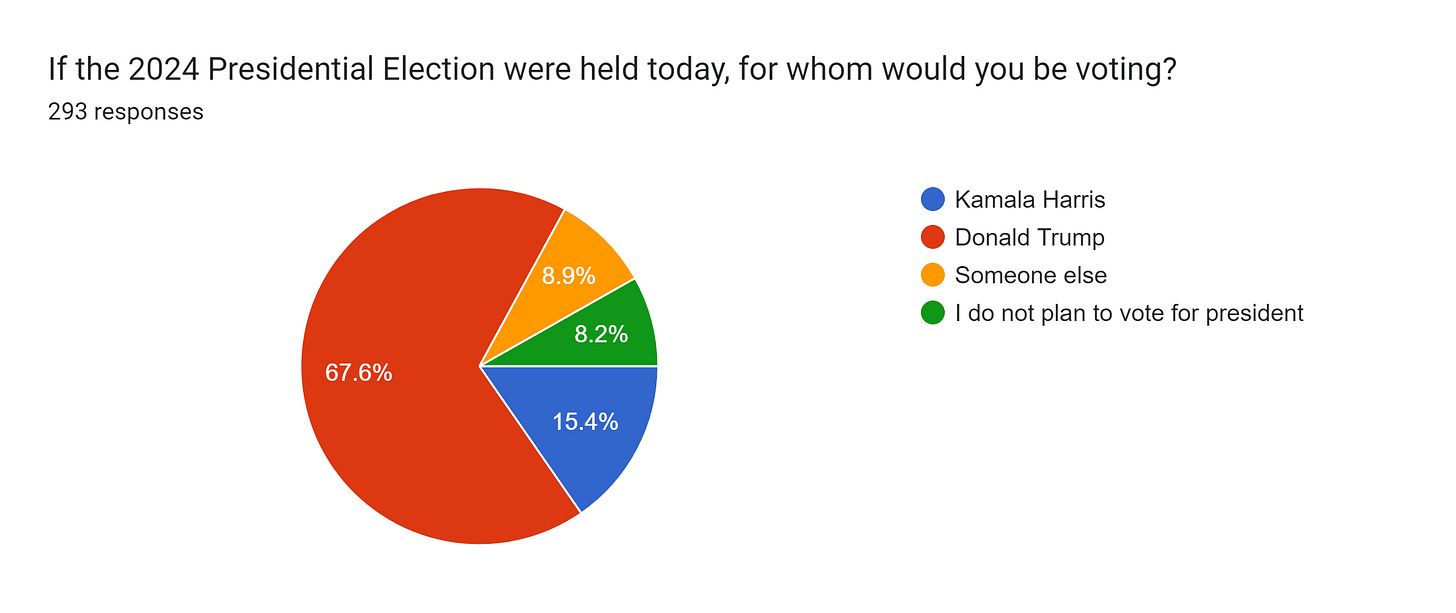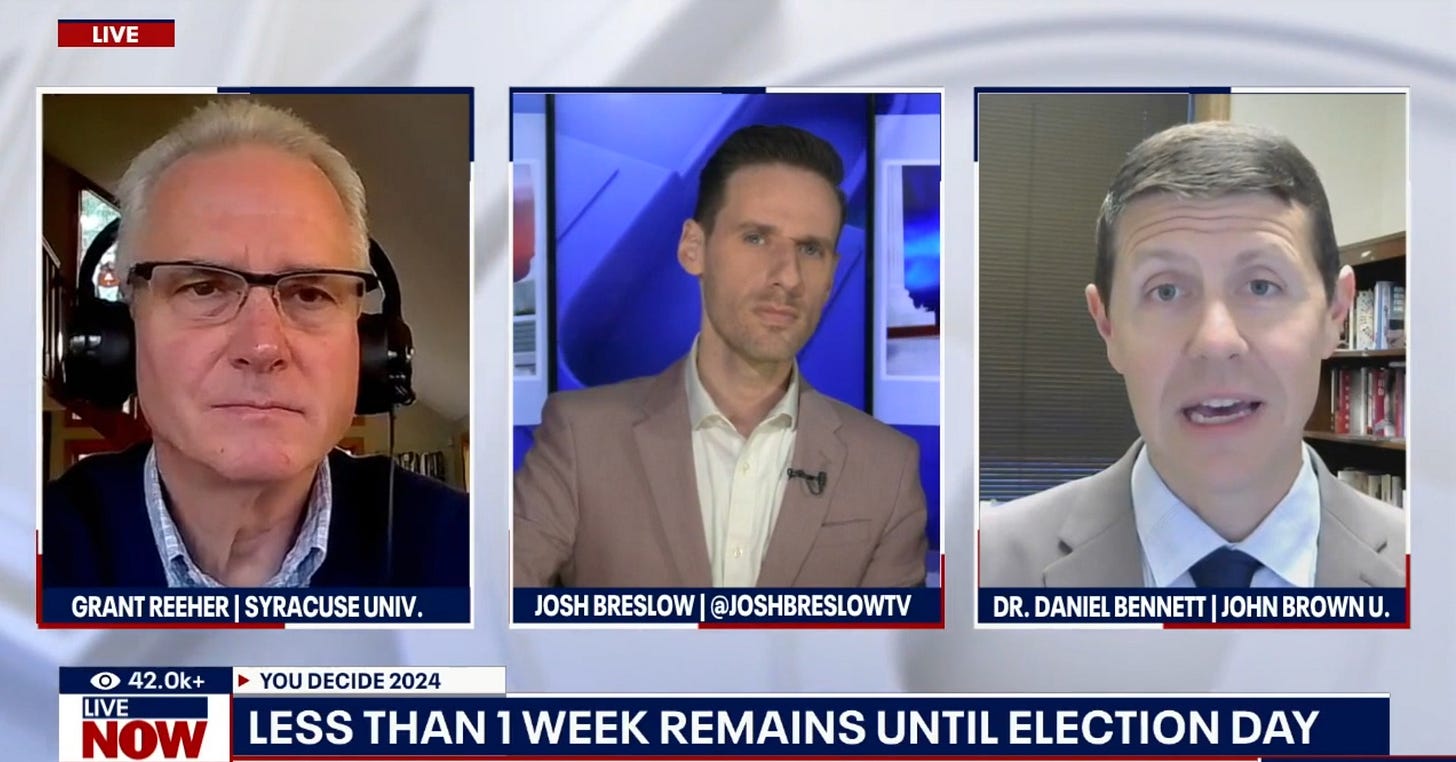How will JBU students vote?
Plus, a recent media appearance and an upcoming speaking engagement in Dallas
This semester I’m teaching a class titled “Gender and Politics in America.” The class examines the relationship between gender and political issues and institutions in the United States, including how gender affects people’s voting behavior.
At one point early in the semester the conversation shifted to the environment at John Brown University, with one student wondering how gender influences political behavior on our campus. I thought this was a great question, and one we could answer fairly easily with a survey.
So, a student and I put together a short survey to send to the undergraduate student body (n=1357). We asked the following questions:
If the 2024 Presidential Election were held today, for whom would you be voting?
If you plan to vote for president in 2024, would you say you are voting more for your candidate or against another candidate?
What issue would you say is most important to you in determining how you plan to vote?
With which political party do you typically identify, and how strongly do you identify with this party?
How would you describe your political ideology?
What is your gender?
How often do you usually attend church?
Eventually, this survey had elicited 293 responses (21.6 percent response rate). So, how are JBU students planning to vote for president?
Over two-thirds of respondents reported they would be voting for Donald Trump in 2024, with just over 15 percent saying they would be voting for Kamala Harris. More interestingly, though, is the gender breakdown:
Women made up 55.3 percent of the sample, with men constituting 44.3 percent
There doesn’t appear to be a major gender gap on campus, with 17.3 percent of women and 12.6 percent of men stated they were planning to vote for Harris. Compared to the overall result of just over 15 percent, this difference between men and women doesn’t stand out all that much.
Now, consider the question of whether students are planning to vote for a candidate or against the other:
This result is more or less split down the middle, with a slightly plurality saying they’re planning to vote for their candidate instead of against the opponent. Again, the gender breakdown:
Among women Trump voters, 50 percent said they were voting for Trump instead of against another candidate (likely Harris), while among men Trump voters, 64 percent said they were voting for Trump
Among men Harris voters, 50 percent said they were voting for Harris, while among women Harris voters, 64 percent said they were voting against another candidate (likely Trump)
The number of Harris voters is small among the JBU undergraduate student body (at least according to this sample), but there are marked differences in terms of why men and women are voting for her.
There are also differences in the issues motivating these students’ votes. The top issues identified in the survey are as follows:
The economy (23 percent)
Abortion (17 percent)
Immigration (6.5 percent)
The candidate’s character (6.5 percent)
Democracy (3.8 percent)
Here are the issues broken down by preferred candidate:
Trump voters
The economy (32 percent)
Abortion (19 percent)
Immigration (6.5 percent)
Harris voters
Democracy (16 percent)
Abortion (13 percent)
Candidate character (13 percent)
And here are the issues broken down by gender:
Women
The economy (21 percent)
Abortion (20 percent)
Candidate character (6.8 percent)
Men
The economy (26 percent)
Abortion (13 percent)
Immigration (7.9 percent)
As for party identification and political ideology among JBU undergrads, most identify as Republican and conservative:
The bottom line: While this year’s election is poised to highlight the gender gap—at the national level and in various swing states—JBU appears to be bucking that trend, with a healthy majority of students (both men and women) reporting they’ll be voting for Donald Trump for president.
Media and Speaking Engagements
Yesterday I had the opportunity to appear on LiveNOW from Fox to discuss the presidential election. I appeared alongside a professor from Syracuse University, and together we answered questions about critical states to watch, the candidates’ closing messages, and more.
You can find the full video here.
Meanwhile, this weekend I’m thrilled to be speaking with young adults at Park Cities Presbyterian Church in Dallas, Texas.1 I’ll be sharing about Uneasy Citizenship and reflecting on practicing a hopeful and faithful political posture, just two days before Election Day. If you’re in the area, feel free to stop by.





